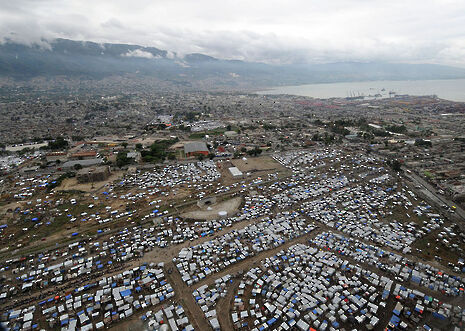‘IDPs’ are the most vulnerable people in the world – but few know they exist
In her third column on issues that young people should be taking notice of, Tasha Staines examines the often ignored plight of internally displaced persons

A ‘refugee’ is a term that holds legal status in international law. You are subject to certain rights of amnesty and a level of protection from the international community. More than this, the ‘refugee crisis’ is one that is acknowledged by society as a whole, and has led to the emergence of action groups here at the University, keen to help their plight.
However, with the chaos continually approaching Europe’s borders, another crisis is simply being overlooked.
An ‘Internally Displaced Person’ (IDP) is someone who is forced to flee his or her home, similar to a refugee, but whom remains within his or her country’s borders. They are therefore not accredited the legal recognition of a refugee, despite facing the same challenges, thus making them the most vulnerable people on the planet.
“We can think of IPDs in many cases, especially Syria and Yemen, as ‘those who are left behind.’ They are also more likely to be trapped closer to direct conflict or persecution, only heightening their vulnerability.”
In 2016, there were 31.1 million people internally displaced; the equivalent of one person every second. Unfortunately, due to the less confrontational manner of this crisis, it has been overshadowed. There has been some debate in recent times as to whether refugees and internally displaced peoples should be recognised equally, but as this is ongoing, it is of little use to those directly affected.
A primary reason that IDPs are the most vulnerable people in the world is their lack of legal standing. Due to the respect given to sovereign governments, work from NGOs and international bodies can only be complimentary. Under the Geneva Convention, a Refugee is someone seeking asylum from persecution and who is outside the country of his nationality. This final clause leaves IDPs with little place to go.
Official responsibility has to lie with their government, even if it is their government which is causing them to flee. Often the persecution is more direct and so the need to flee more immenant, especially in areas where internationally recognised borders are in contention within the country, and issue facing the Nineveh plain in Iraq. Furthermore, a lack of legal protection within their country leads to a high risk of physical attack, sexual assault and abduction, and IDPs frequently are deprived of adequate shelter, food and health.
Political complicities leave collateral damage, often in the form of IDPs. Currently in Iraq, Security officials are preventing displaced families from returning home due to perceived ties to the Islamic State. Humans rights watch continues to follow the story as thousands of displaced families are being evicted from their homes.
Something worth remembering is that IPDs are most likely to be women and children, just as those who are stranded in Calais are most likely to be young men, as they have more capability to escape. In this regard, we can think of IPDs in many cases, especially Syria and Yemen, as ’those who are left behind.’ They are also more likely to be trapped closer to direct conflict or persecution, only heightening their vulnerability.

Five lessons from a 13-year-old Syrian boy
You will very often find that IDPs are simply poorer than the refugees we have seen reaching the EU’s borders, and that is what has prevented them leaving. “The journey to Europe is very cumbersome, and it’s not cheap so you have to have a certain level of resources to do it,” says Carsten Hansen, Middle East director for the Norwegian Refugee Council. Smugglers are a means for the wealthy, or at least the middle class of society. Those left behind are often there because of financial restraints.
There are currently twice as many IDPs as refugees in the world. Despite this, their plight often falls on deaf ears where the media is concerned. Internal displacement is an issue that has had little media coverage and IDPs is not a term people will generally recognise. For this reason we all need to do our part to educate ourselves and remember that those who have reached Europe, in some ways, are the lucky ones.
So, what can we do? As fore-mentioned, educating ourselves to the plight of these people is a must. Looking towards the future, there needs to be a call for IDPs to be recognised equally alongside refugees in international law. The University as a whole has a good response to the Refugee Crisis but maybe it’s time to consider the issue a little deeper and focus our efforts equally towards those who have been left behind
 News / Eight Cambridge researchers awarded €17m in ERC research grants27 December 2025
News / Eight Cambridge researchers awarded €17m in ERC research grants27 December 2025 News / Downing investigates ‘mysterious’ underground burial vault 29 December 2025
News / Downing investigates ‘mysterious’ underground burial vault 29 December 2025 Lifestyle / Ask Auntie Alice29 December 2025
Lifestyle / Ask Auntie Alice29 December 2025 Sport / Hard work, heartbreak and hope: international gymnast Maddie Marshall’s journey 29 December 2025
Sport / Hard work, heartbreak and hope: international gymnast Maddie Marshall’s journey 29 December 2025 Interviews / Meet Juan Michel, Cambridge’s multilingual musician29 December 2025
Interviews / Meet Juan Michel, Cambridge’s multilingual musician29 December 2025








